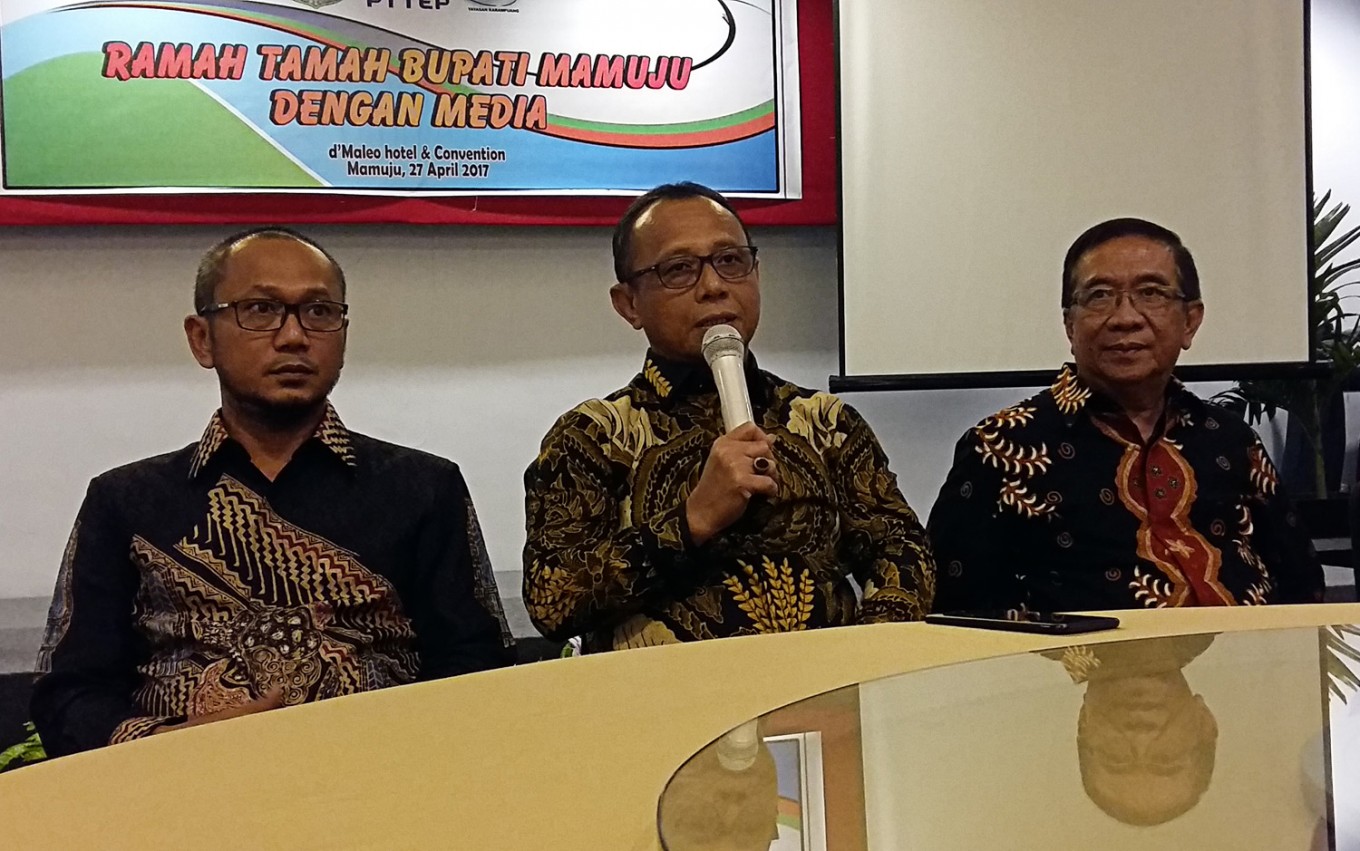West Sulawesi struggles to improve education, health
Change Size
 Pushing for progress: Mamuju Vice Regent Irwan Satya Putra Pababari (left), Mamuju Regent Habsi Wahid (center) and PTTEP Indonesia general affairs manager Afiat Djajanegara (right) respond to questions during a press conference in Mamuju, West Sulawesi, on Thursday. (JP/Anton Hermansyah)
Pushing for progress: Mamuju Vice Regent Irwan Satya Putra Pababari (left), Mamuju Regent Habsi Wahid (center) and PTTEP Indonesia general affairs manager Afiat Djajanegara (right) respond to questions during a press conference in Mamuju, West Sulawesi, on Thursday. (JP/Anton Hermansyah)
T
he administration of Mamuju in West Sulawesi is striving to boost the number of people receiving adequate education by, among other things, dispelling myths that have all this time discouraged people from going to school.
Mamuju regent Habsi Wahid said around 9,000 youngsters among the regency’s 290,000 inhabitants were currently not getting adequate education. They had decided not to pursue further education or not to go to school at all for various reasons, such as poverty and early marriage. Many parents were telling their children that their social and economic condition would remain the same even if they went to school, he added.
“Hence, the government needs to intervene. We have created a ‘back to school’ program. Under this program, we have supported 4,000 of the 9,000 targeted children to continue their education, while the remaining 5,000 children will follow soon,” Habsi said during a press conference in Mamuju on Thursday.
The regent added that, in addition to education, health issues were another major problem for the people of Mamuju. Citing 2013 Basic Health Research (Riskesdas) data, he said the prevalence of stunting in children below the age of five stood at 31.15 percent, much higher than the national average of 15 percent, and the second-highest in West Sulawesi, after Polewali Mandar, where it stood at 32.53 percent.
Habsi said the Mamuju administration strove to solve the combined problem of education and health by introducing the concept of Stimulation Intervention and Optimization of Childhood Services (SIOLA), a concept of combining early education with health services and financial support, introduced in 2012.
“In SIOLA, we have a mini-Posyandu (integrated health service post) staffed by medical workers and nutritionists dispatched by the government. Parents can also borrow money to finance their children’s education, with the loans coming from the state budget and the village funds,” he said.
Currently, Mamuju has 10 SIOLA in Mamuju. Habsi said the Mamuju administration planned to convert all 260 kindergartens in the regency into SIOLA, starting this year.
“We will combine the government budget with assistance from corporate social responsibility (CSR) programs provided by companies operating here, such as banks and oil and gas firm PTTEP,” Habsi said. (ebf)









